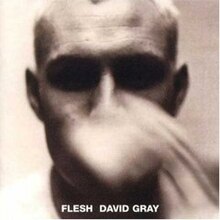
Only Everything is a solo album by Juliana Hatfield, released in 1995. Two singles with accompanying music videos were released from the album: "What a Life" and "Universal Heart-Beat." "Universal Heart-Beat" peaked at #5 on Billboard's Modern Rock Tracks in 1995.

Visions of Excess is the second album by the Golden Palominos. The band's line-up was substantially different from their first album. It includes a cover of Moby Grape's "Omaha," with Michael Stipe singing lead.

Halfway to a Threeway is an EP by American musician Jim O'Rourke. It was released by Drag City in 1999.
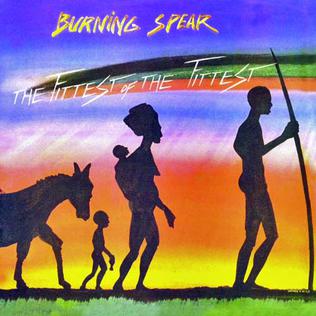
The Fittest of the Fittest is an album by the reggae musician Burning Spear, released in 1983.

Greed is the third studio album by American experimental rock band Swans. It was released in 1986, through record label K.422. Greed marks the slow turning point for Swans away from the harsh, brutal noise rock of prior releases, and is also the first Swans album to contain contributions from Jarboe.

Life in Exile after Abdication is the second album by Moe Tucker, released in 1989.

A Century Ends is the debut studio album by musician David Gray, released on 12 April 1993. Following the success of Gray's fourth album White Ladder, which sparked an interest in his back catalogue, A Century Ends was re-released in July 2001. Three singles were released from the album: "Birds Without Wings," "Shine" and "Wisdom."
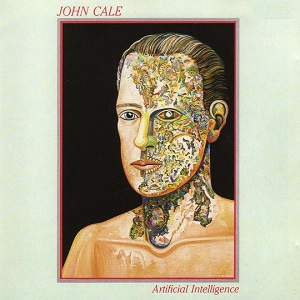
Artificial Intelligence is the tenth solo studio album by the Welsh rock musician John Cale, released on 6 September 1985 by Beggars Banquet Records.

Laugh? I Nearly Bought One! is the first major compilation album by English post-punk band Killing Joke, released in September 1992 by Caroline Records in the U.S. and in October by Virgin Records in the U.K. and Europe.

Essential Rarities is a compilation album by the Doors, originally released as part of the boxed set The Complete Studio Recordings in 1999, but reissued in 2000 as a single CD, containing studio cuts, live cuts and demos taken from the 1997 The Doors: Box Set.

Boink!! is a rare 1986 album by The Replacements. It was released in the UK on Glass Records.
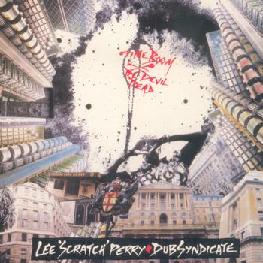
Time Boom X De Devil Dead is a 1987 studio album by Lee Perry and Dub Syndicate. It was re-released in 1994 by On-U Sound and in 2001 by EMI Records.

Distorted Ghost is an EP by Sparklehorse, released in 2000. It is a collection of b-sides and live tracks.
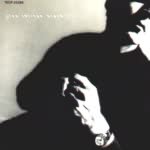
Black List is an EP by the American pop rock musician Alex Chilton, released in 1990. The EP includes three Chilton originals and three cover versions. These are a cover of Ronny & the Daytonas' "Little G.T.O." on which Chilton played all the instruments; a version of Frank Sinatra's "Nice 'n' Easy", and a song penned by country blues musician Furry Lewis.

The Golden Palominos is the debut studio album by the alternative rock band the Golden Palominos. It was released on May 20, 1983, on Celluloid Records.
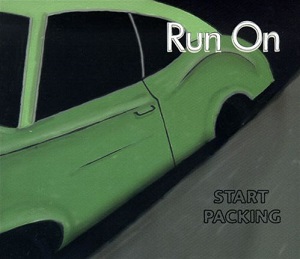
Start Packing is the debut album by Run On, released in 1996 through Matador Records.
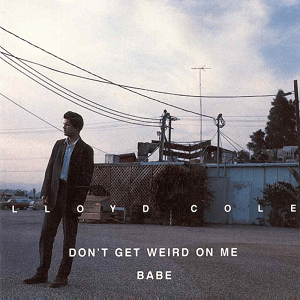
Don't Get Weird on Me Babe is the second solo album by the English musician Lloyd Cole, released in 1991. The title comes from a Raymond Carver expression. Unlike the original release, the American version of the album leads with the "rock" half and ends with the orchestral songs.

"Angel" is a song by British singer and songwriter Kirsty MacColl, released in 1993 as the lead single from her fourth studio album Titanic Days. It was written by MacColl and produced by Steve Lillywhite. For its release as a single, "Angel" was remixed with additional production by Gregg Jackman. The song reached number 87 in the UK Singles Chart and number 26 on the US Billboard Modern Rock Tracks chart.

"Can't Stop Killing You" is a song by British singer and songwriter Kirsty MacColl, which was released in 1993 as the second single from her fourth studio album Titanic Days. It was written by MacColl and Johnny Marr, and produced by Victor Van Vugt and Baboon Farm. The song reached No. 20 on the US Billboard Modern Rock Tracks and remained on the chart for seven weeks.

What Do Pretty Girls Do? is a live compilation album by British singer-songwriter Kirsty MacColl, released by Hux Records in 1998. The compilation features fifteen tracks recorded across four BBC Radio One sessions between 1989 and 1995.

